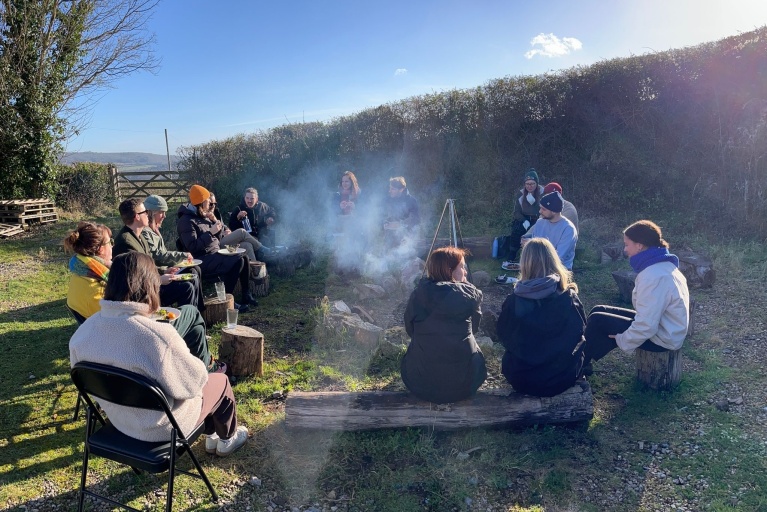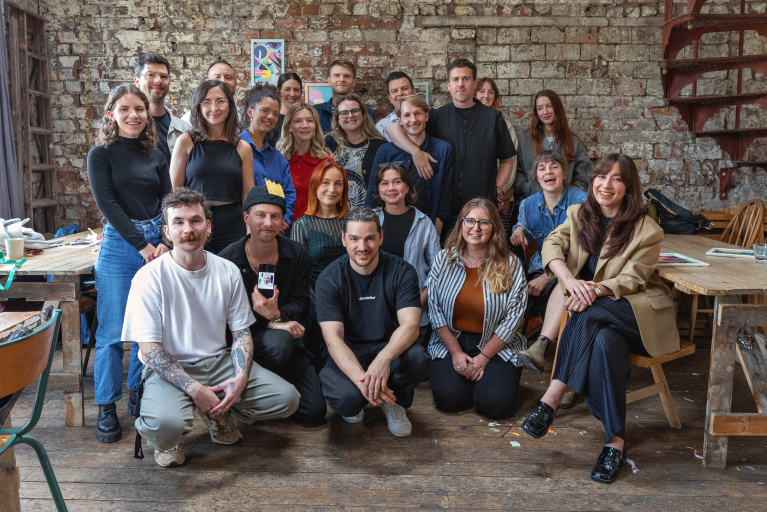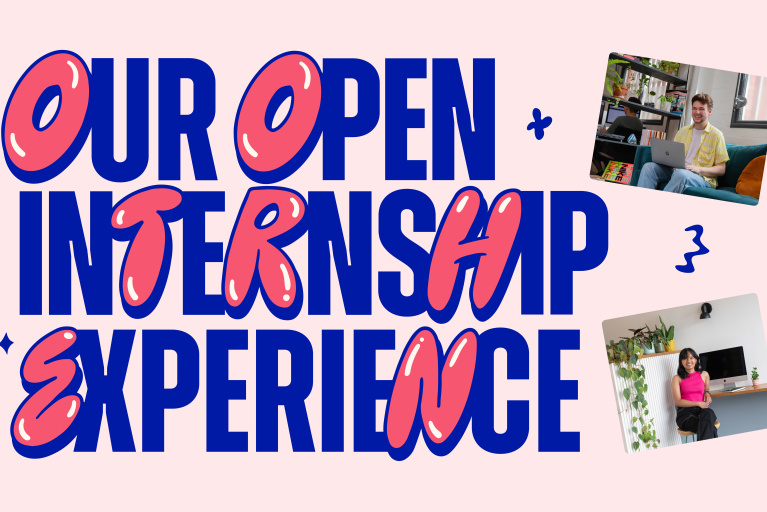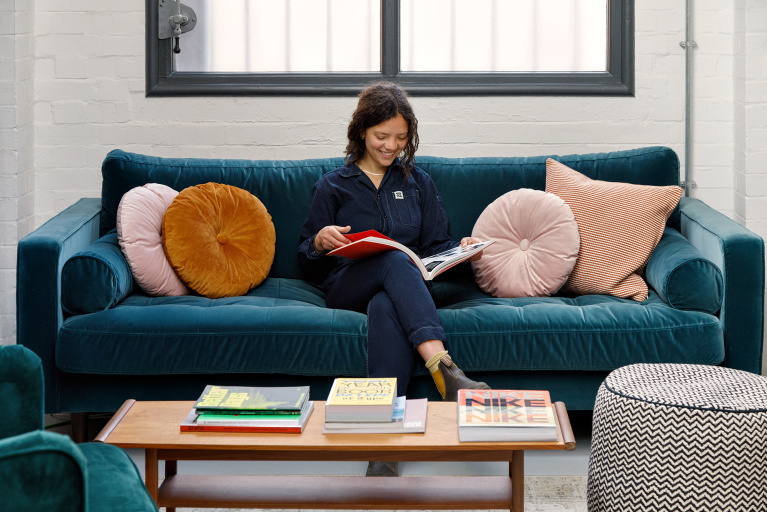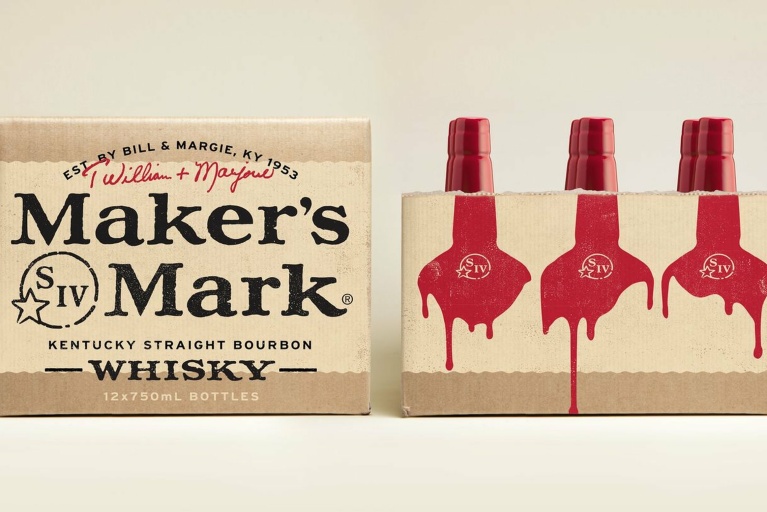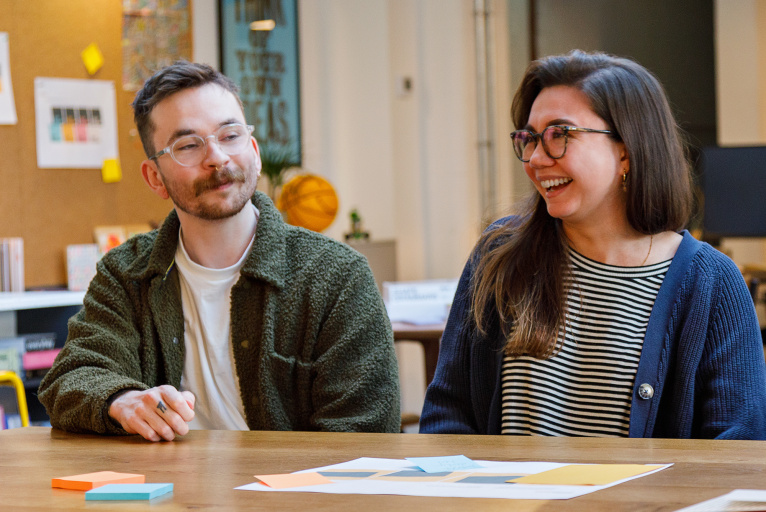In the first of a three part series, we’ve banged our heads together to come up with – what we hope will be – useful advice for new grads – Gradvice™️ if you will. To kick things off, we’ve collected some sage words of advice from the FD team on landing your first job in the creative industries…
Landing your first job after university or even changing careers can be a daunting prospect, but it doesn’t have to be. Many people before you – us at Fiasco Design included – have been in the same position. Proof that it is possible!

In an attempt to help anyone looking to kick start their career, we asked the team “what one piece of advice would you give to new graduates starting out in the design industry?”
Now, before we get started, we feel a congratulations is due! Graduating isn’t something to be taken lightly and is often over-looked amongst the panic to get your freshly graduated foot in that door. If only for a short while, remember to take a moment for yourself. Appreciate and reflect on all that hard work you’ve put in at university, over the last few years. Cheers to that – 🍻!

Back to it. Coming in at numero uno…
➊ Hold the software graphs
You’d be amazed at the number of graduates who draw graphs to display their Adobe software skills. I’ve drawn an example below – in Illustrator, if you’re wondering, a program I am ‘ok’ at. Please stop this. Most studios will expect a basic knowledge of Photoshop and Illustrator, perhaps Indesign if you create print work and possibly Sketch if you’re working in digital. But software can be learned, and any studio worth joining will be willing to invest time in you whilst you learn new applications and skill up. You could even email a studio you admire and find out what software they use if you’re unsure you have the right skillset and want to hit the ground running.
Don’t worry about software and graphs – show your best work and passion, instead.
Ben M, Lead Designer

Note: “Those aren’t my skills by the way. I’m not that good in Photoshop”
➋ Draw on your transferable skills
Just because you haven’t worked on a specific type of project before or in a specific type of workplace, doesn’t mean you can’t do it!
Draw on your transferable skills wherever possible, and look for specific areas that you can add value. Having the right attitude to learning new things will expose you to a wider variety of work.
I started out by working as a social media intern at a design agency, and although I wasn’t directly involved in the client-facing projects, working with a team of creatives was something I really enjoyed. From there, I went onto a digital marketing agency and expanded my digital knowledge, whilst honing my account management skills, and from there I went on to a web-development agency in Bristol, building relationships with a large client base and managing a variety of web projects.
Hayley, Account Manager

Transferable skills.
➌ Do your research and make it personal
Just because you’re looking for a job in the design industry doesn’t mean you need to apply to each and every design agency out there.
Not all studios and agencies are the same, so take some time to do your research. Get to know what sort of work the agency does and whether is aligns with your skill set. Also, find out what is their studio culture is like.
When you’ve decided on a selection of companies to approach, find an appropriate team member to direct your correspondence to. No one wants to be on the receiving end of a ‘To whom it may concern’ or ‘Dear Sir or Madame’. Be professional but don’t forget you’re allowed to express your personality! First impressions are everything.
Marj, Account Executive

Make it personal.
➍ Attitude is not an afterthought
Your ability to mesh into a team by taking responsibility for your role, showing initiative and embracing feedback is not merely an afterthought.
Once I left uni and was looking for internships, I had this impression that it was all about my work. What I didn’t realise was that once you do get over that first hurdle and find yourself in an interview, it’s not primarily to talk about your work. Largely, the purpose of these types of interviews is to use your work as an excuse to see how enthusiastic you are, to see how you react to social situations and to get an impression of how you might gel into the team.
It took me a long time to realise that it was the energy that I brought to my ideas that got me my position here as the first employee at Fiasco Design almost 8 years ago. And it’s that elusive balance of a team-player with a spirit of excellence that everyone is looking for.
Tom M, Head of Creative

Attitude is not an afterthought.
➎ What excites you?
Following on from what Tom said, when we hire new people to join FD we’re looking for people whose values and interests fit with those of the studio and the team. It’s not always about the best or most skilled designer, developer, account manager etc. We look beyond skills for interests and pastimes outside of work. This says a lot about someones character and what motivates them. So if you’re sending a covering letter or CV, make sure you outline your interests and what excites you.
Ben, Co-founder & Creative Director

“So, do you have any hobbies?”
➏ Ask ‘Why?’
I think one thing that stays at the front of my head when I’m working on a brief is this. Keep asking ‘Why?’ Question your decisions. Question your motive – why does this solution answer the brief? Why this typeface? Why these colours or choice of words? I find it helps me to keep my ideas focussed and it makes me always go back to the brief until I’m sure I’ve come up with the solution that best answers it. It’s easy to get over excited and want to show off all of your skills and techniques, but it’s more important to make sure the concept is solid.
Basically, don’t show off!
Julia, Junior Creative

➐ Allow time for passion projects
Don’t be scared to try new things, even completely new fields away from what you have studied if they interest you. You never know where a little passion project can lead. For me personally, coming from a fine art and design background wasn’t a natural precursor to a career in coding for the web. I was interested in it, so pursued it in my personal life, outside of work. Eventually it started creeping into my work life too, and then into a full career.
Essentially, don’t put off dabbling in other creative fields because it isn’t directly related to your studies.
Nick, Creative Technologist

➑ Be kind to yourself
One simple piece of advice to new grads; keep your eyes open. By that I mean inspiration and opportunity can come from anything.
I started in the industry as an Account Executive in an advertising agency, all I knew was that I loved how a creative idea brought to life can make people feel – particularly, how watching Brains from Thunderbirds breakdance to ‘Rhythm is a Dancer’ makes me feel fantastic.
But, turns out not everyday is working on big production creative. It took a lot of good experiences, and some not-so-good, to find out what it was I wanted to do in this industry and how to make it fulfilling and enjoyable pretty much everyday.
So something to remember when starting out – be kind to yourself and don’t sweat the small stuff.
Sam, Senior Account Manager

➒ Focus on the journey and don’t be a snob when it comes to your first job
I was guilty of this. I left University with high expectations and a bucket list of where I’d like to work. I spent the best part of a year searching for what I perceived to be the perfect job, turning down job opportunities along the way because I was being too picky.
That could have been a year spent working within the industry. A year of experience. Experience that would have put me in a better position to land the next job. I had to change my mind set.
I eventually moved cities and started working for a small print studio on the outskirts of Bolton, which is pretty much the middle of nowhere. The room in which we worked was makeshift and sat awkwardly in the corner of a large, draft riddled warehouse. It had wobbly MDF walls and a few pointless rolls of semi-transparent, plastic slung over the top. It wasn’t how I envisioned my first place of work, thats for sure.
Putting the aesthetics of the place to one side, I learnt plenty during my time there. I gained invaluable experience working hands on with print and getting up to speed with realistic project deadlines.
Your first job doesn’t need to be the perfect job. It’s just a stepping stone to the next one.
Tom G, Senior Creative

We hope you’ve found our advice piece on ‘How to Land your first job in the creative industries’ useful. For our second in the Gradvice series we outline the The Do’s and Don’ts When Contacting Design Agencies – check it out! 🎓

